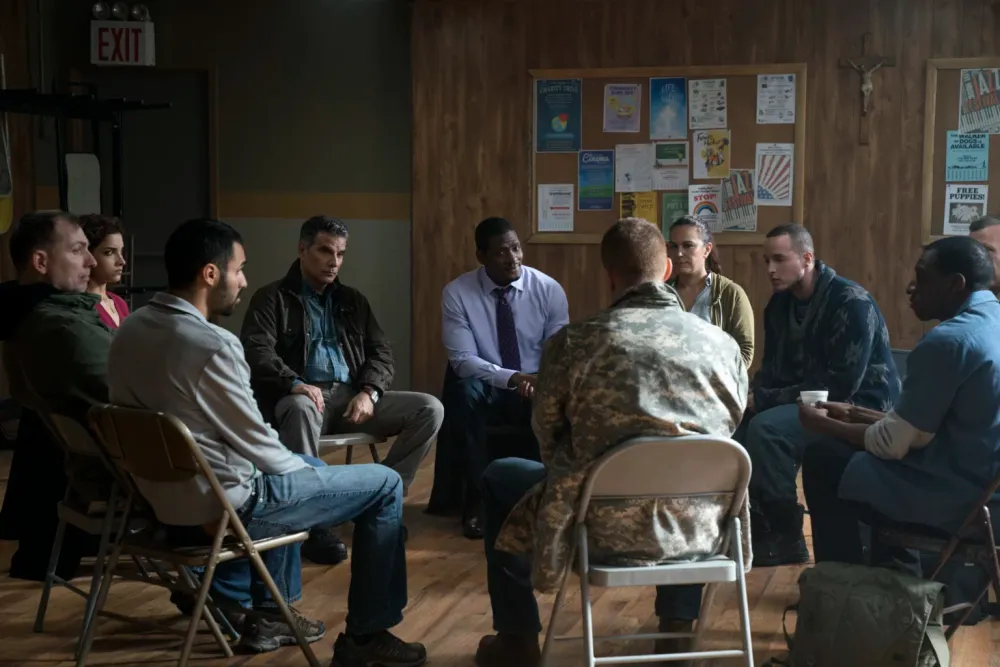What’s The Link Between Veterans And Substance Abuse?
Substance use disorders (SUDs) and veterans are a very real concern for many countries in the world. And in the United States, substance abuse among veterans continues to skyrocket. SUDs is an umbrella term for any type of drug abuse, addiction, or dependency on illicit or prescriptions drugs.
Despite their prevalence, it can be difficult to identify when someone has a substance use disorder. The best way to diagnose this type of disorder is through observing the person’s behavior and symptoms. Veterans, for example, are at a much higher risk of developing a substance use disorder because of exposure to trauma. This results in PTSD (discussed below) or other mental health conditions that then lead to substance abuse as a coping mechanism.
The link between substance abuse and veterans, especially when it comes to suicide rates, is incredibly strong. One study, for example, highlights that roughly 30% of veteran suicides were preceded by drug or alcohol use. In short, the overall well-being of veterans cannot be fully addressed without tackling the substance abuse they suffer from.
How Common Is PTSD In Veterans?
One of the biggest factors in veteran substance abuse is post-traumatic stress disorder (PTSD. PTSD is a mental health condition incurred as a result of a traumatic event. Because of their exposure to war, violence, and humanitarian crises, many veterans struggle with this disorder and often find it difficult to live their daily lives.
Because of these traumatic experiences, veterans are more likely to have PTSD than the general population. The intense exposures to violence or combat compared to civilians makes them uniquely susceptible to certain mental health issues.
Beyond violence, other examples of PTSD for veterans include military sexual trauma, combat trauma, and abuse from military personnel. All these lead to mental health issues and likely substance abuse.
Other Symptoms Experienced By Veterans
It is not uncommon for veterans to struggle with anxiety and depression in addition to PTSD. This, of course, contributes to veterans’ struggles with substance abuse and addiction. Here are some common symptoms of veterans in need mental health and addiction support:
- Flashbacks
- Hopelessness
- Insomnia
- Relationship problems
- Aggressive behavior
- Memory problems
- Self-destructive behaviors such as inflicting self-harm
- Engaging in substance abuse
Veteran support programs and addiction centers can provide specialized guidance from medical and mental health professionals for such symptoms. No one should have to navigate painful experiences alone.
What Role Do Chronic Pain And Physical Trauma Play In Substance Abuse?
Aside from the PTSD most veterans endure, chronic pain is another common issue that can lead to substance abuse. The most effective and safe treatments to manage acute and chronic pain include prescription medicines. Unfortunately, these are often highly addictive and result in misuse and abuse of the substances.
Veterans who have been diagnosed by a medical professional with chronic pain resulting from injuries often receive opioid medications. These opioid medications, such as morphine or Oxycontin, can become extremely addictive. Moreover, regularly prescribed medications make a person more susceptible to addiction because they often fly under the radar. Medical professionals often miss the signs of addiction patterns despite veterans’ heightened risk.
Overall, the prevalence of prescription drugs used for ailments among veterans and military personnel makes them a key player in veteran substance abuse. Because they can take prescription drugs when experiencing discomfort emotionally or physically, it often leads to misuse and abuse because of PTSD or other co-occurring disorders.
Treating Substance Abuse With Veterans
The best way to overcome addiction is to acknowledge triggers and create a plan to navigate these challenges in a healthy way.
A veteran in addiction recovery will be provided with supportive medical staff to rid their bodies of toxins associated with substance abuse. Mental health practitioners will be available as well. They will offer individual and group therapy options to allow veterans to realize that they are not alone in their experiences.
Finally, in group therapy, veterans will learn new behaviors with their peers. Veterans can participate in a number of therapy programs such as art, music, and mindfulness to further support their healing. The behaviors and activities that veterans in addiction recovery have learned can be later transitioned through their sobriety. Family therapy is also available to help veterans, spouses, and children communicate these challenges.
In addiction recovery, healthcare practitioners will use a variety of evidence-based modalities such as cognitive-behavioral therapy (CBT), dialectical behavior therapy (DBT), and eye movement desensitization and reprocessing (EMDR). One study tried Cognitive Behavioral therapy on a selection of older veterans suffering from severe addiction and mental health conditions. The results indicate the usefulness of CBT for veterans, especially those with complex issues ranging from social, mental, and physical factors.
Getting Help And Minimizing Stigma For Veterans
Many veterans struggling with addiction may not go because of the social stigma surrounding mental illness and substance abuse. Some veterans might fear that others see them as weak if they admit they have a problem. But learning to reach out for help is the first step.
The next phase is learning to live in recovery without substance abuse as a coping mechanism. Treatment programs such as residential treatment and inpatient regimens can offer promising options for a journey toward recovery.
Making a decision to protect one’s country is an honorable choice. However, in the process, many public servants have experienced trauma while in combat. In many cases, this can cause veterans to turn to drugs and alcohol to numb the pain associated with certain memories.
A veteran’s support group and treatment program will provide you with the tools you need to acknowledge your past traumas and start your healing process. For addiction treatment options, don’t hesitate to reach out to a qualified professional at Impact Recovery today.
